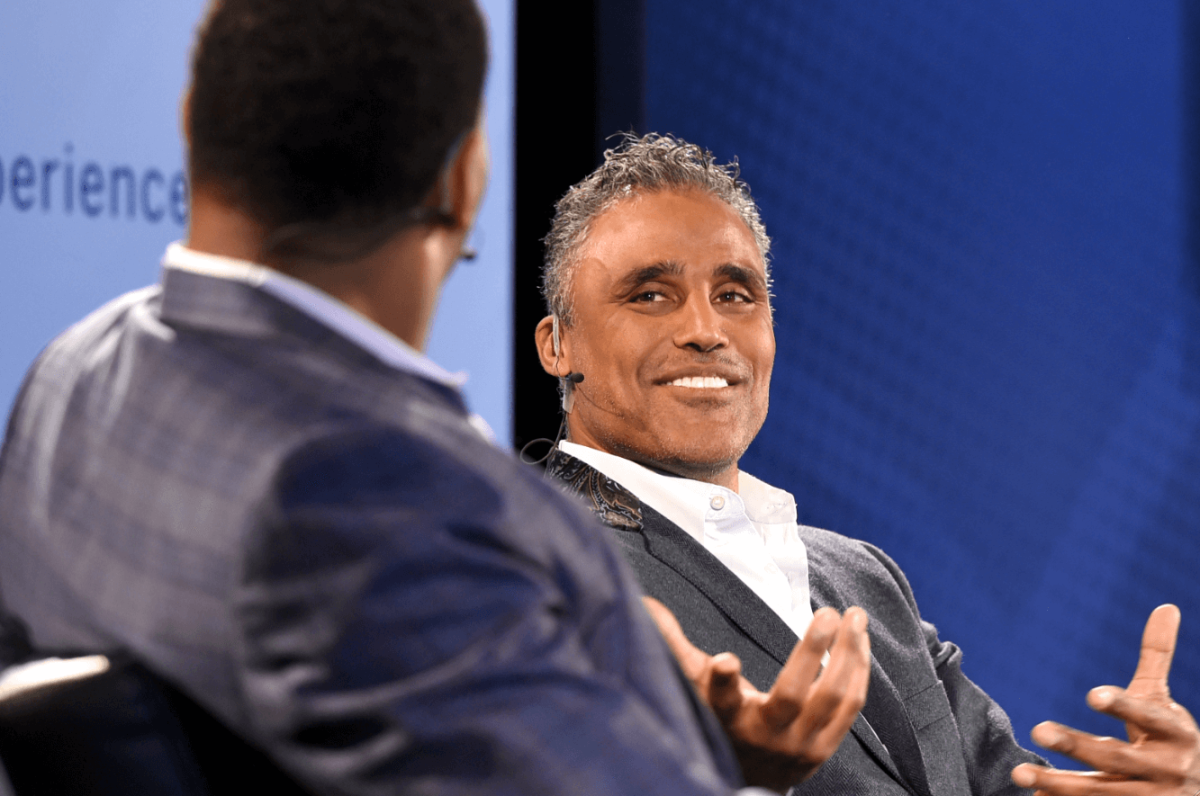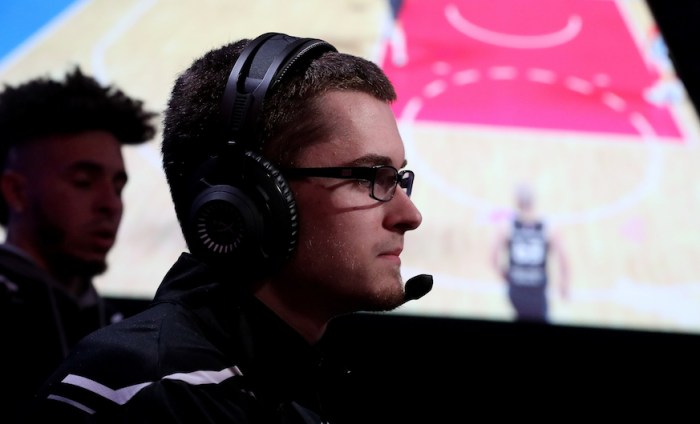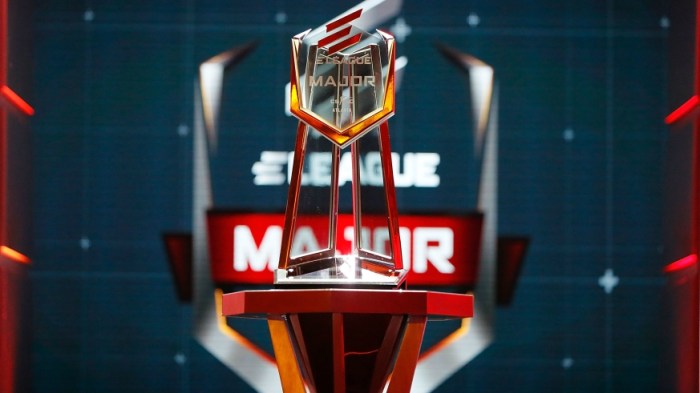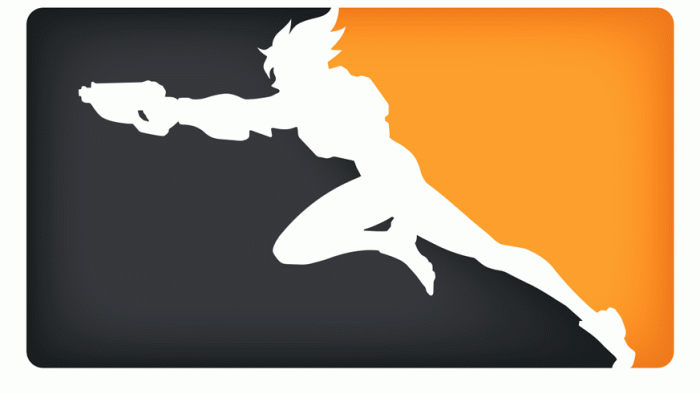Rick Fox was a key player on one of the coolest teams ever in arguably the coolest sport on the planet. The NBA has street cred like you read about, and the early 2000s Lakers led the sports world in swagger at the time. Back then, video gamers had a certain stereotype attached to them too. Still, in some people’s minds, video gamers are part of a “geek” culture.
Competition though is almost always “cool” and Fox is at the forefront of a competition revolution. The former NBA star, who is also an established Hollywood actor, owns an eSports team and is now one of the more prominent figures associated with eSports. Fox went one-one-one with Metro’s Matt Burke and talked about the growth of eSports, how he got into it, and – of course – some NBA.
Burke: The last time I spoke with you was probably 1994. You did a speech at my elementary school. I remember you saying you wanted to become a dentist but you couldn’t because of the size of your hands. Fox: Haha, wow. That’s going back.
Burke: As much as I want to ask you a million question about the 90s Celtics, I’ll try to stick mostly to eSports. How’d you get interested in eSports?
Fox: Well, I’m a video gamer at heart and it really became a connector between me and my son. He was going to school in Boston and I was out in LA and playing games online was a way for us to connect. His passions for the video game industry grew and so did mine. We’ve grown with it and it’s now grown to a level where you have masters of their fields and people are making a living from it. It’s a new expression of pro sports. Burke: When did it first occur to you that you could actually own an eSport franchise and why did you think this might be something you’d want to pursue?
Fox: I was aware for awhile that ownership was attainable and that franchises were popping up. I wasn’t aware at the time at how much time you had to commit to it if you wanted to do it right. You’re really running a start-up company. I thought to myself If you’re really going to compete here, it’s gonna take a real commitment. I have day-to-day conversations with my team and I’m invested in a number of different areas of the business. It’s all consuming. I don’t think I would recommend doing this with one foot in. That’s a good way to lose a lot of money. But if you’re passionate and if it’s a part of your life anyway and you have the ability to understand and execute a business plan … if you’re OK with being an owner and not having an impact on the actual play, then maybe it’s something you should look at. It’s not sitting down and playing a couple hours of Madden. It’s a business. Burke: How much does it cost to start up or buy an eSports team like this?
Fox: It depends on how many franchises you choose to have expressions in. It depends on how committed you want to be in supporting your players.
It’s around a million dollars just to get a slot, and then you build it from there. It’s unlike owning an NBA team where you’re one team in a league. Here you’ll have like three teams in three major leagues that compete year-round. These are individual athletes that compete year-round. It’s about growing a global brand and that requires capital and infrastructure. Burke: Are you a Mark Cuban type owner at these competitions? Are you going nuts from the sidelines?
Fox: Haha, I think I resemble more of a Mark Cuban type than some of the other owners I witnessed in the NBA. It’s hard for me at 6-foot-7 in an eSports arena to hide.
I’m always involved in the process week-to-week and I have my ear to the ground. The whole thing keeps me on the edge of my seat. It’s hard for me not to track it and not be emotional.
Burke: I did a story on eSports a month or so ago and one of the big stereotypes still out there is, “oh that’s just the stuff that geeks do.” How are you helping to correct that idea? Fox: First of all, I don’t subscribe to it. I also don’t spend a lot of time correcting other people’s opinions. These eSport athletes are competitors, they’re gamers.
I can’t turn to the left on a plane without seeing four or five people on their phones playing games. Everyone is gaming these days. It’s a $90 billion industry. It’s bigger than Hollywood. It’s bigger than TV. That might give people a greater sense of how many people are into it. Just as YouTube got everyone’s attention 10 years ago, now it’s gaming. You can’t fight the numbers, you can’t fight the analytics.
The bully mentality, people who cast disparaging comments toward video game players and people who work in the industry … it’s too much of an authentic lifestyle for me to take a second and correct such an archaic stance. Burke: How are eSport gamers and NBA players similar?
Fox: When I sit next to a pro athlete, I don’t care what field they’re playing in, when I sit next to one I recognize one. When I sit next to athletes we’re speaking the same language. That competitiveness, that to me is the connective tissue between all athletes. You can see it in eSports like you see it in the NBA. What separates a legendary player from a regular player? It’s always from the shoulders up. Top players in eSports – it’s their ability to think, to visualize, to run algorithms, to see things three stages before even the other great players see it. There are Kobe Bryants in eSports. From the shoulders up, they take it to the next level. They put in the practice time and they have a unique ability to stay focused. All of these measures – the hand-eye, the fast-twitch muscles, the delicate touch of a shooter in basketball or someone who puts their finger on a controller. It’s the same thing. These athletes get each other. Burke: OK, just a couple NBA questions, promise. A big talking point here in Boston now is whether or not the Celtics could ever reel-in a big-name free agent like a Kevin Durant. Why do you think Boston has been unable to land a big-time free agent over the years and do you think it could finally happen soon? Fox: I would argue that they have in the past. It’s not the traditional free agent route but they’ve gotten big names in trades, they’ve drafted them. Yeah, there’s a sense of rejection or failure when you don’t get the big name. But it’s not because of the city, it’s not because of the history, it’s not because of the money. Every individual is different. It’s funny, I think this generation of player almost aspires for “less spotlight.” They aspire to play with their friends. They strategize on how they can play together.
From my era – being a Celtic or a Laker – that’s what it was all about. Now teams like San Antonio become attractive landing spots because of the recent success.
Players now didn’t grow up in the ’80s but they still might be intimidated by going to one of these top tier franchises like the Celtics or Lakers.
Only a select few want that pressure. You don’t want to sign one of these guys for big money and then figure out that they can’t handle the pressure.
Burke: The Celtics actually tried to bring you back in 2004 in a trade but you retired soon after. Was there any thought on your part of actually coming back and playing for the Celtics a second time? Fox: Oh ya. I wanted to. I did do a physical to see where my body was at. I was fresh off of surgery and I knew I had lost a lot. I was told that there was a chance that I would have to walk around with a cane for the rest of my life if I had kept playing. So I was honest with Danny [Ainge]. I told him that I didn’t know mentaly if I could “get there” and if I could lay it out on the line. I knew only one way to play. That ounce of fear of injury would have effected me mentality and I couldn’t do that. To push through it would have been unfair to myself and the Celtics so I thought it was best to part ways.
It would have been great. My son was still in school in Boston and I could’ve played in front of him but it just didn’t happen.
Burke: Cavs or Warriors?
Fox: Warriors in 7. I always love to see a team win it all in 7. I think the Warriors win but it’s hard for me to not pull for [former Lakers teammate] Tyronn Lue.
Believe it or not, it’s hard for me to not root for LeBron now. Six straight trips to the Finals is really impressive and that excellence should be celebrated. I know how difficult it is to get back to the Finals year after year. To get there so many years in a row and only come away with two, I’d hate to see that happen.
ESports owner and NBA champ Rick Fox talks video game revolution, Celtics, 2016 Finals

Getty Images


















